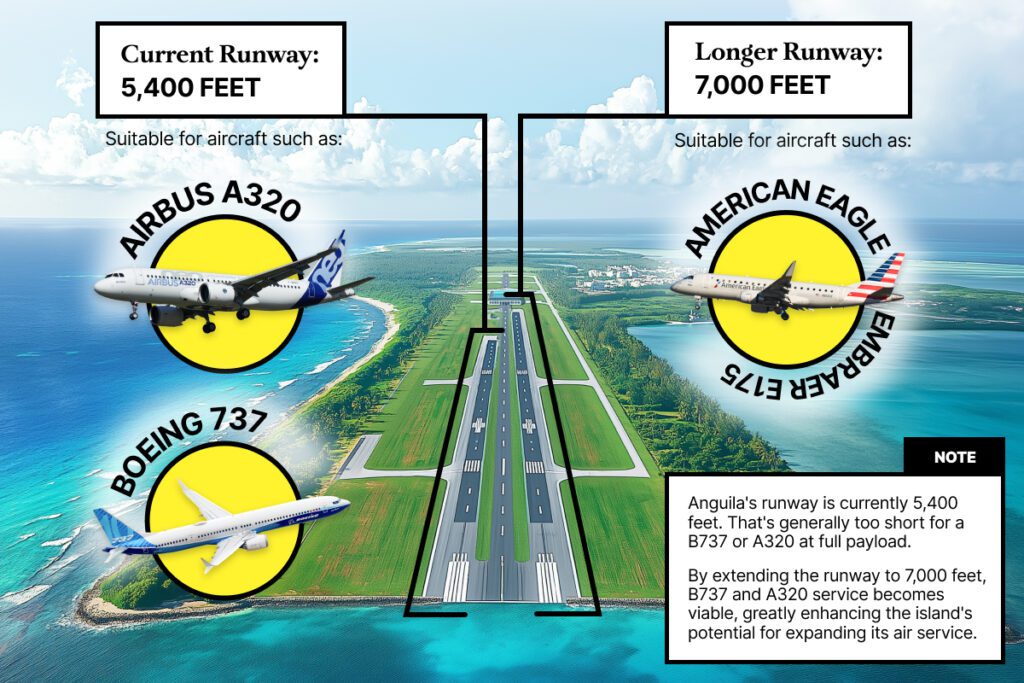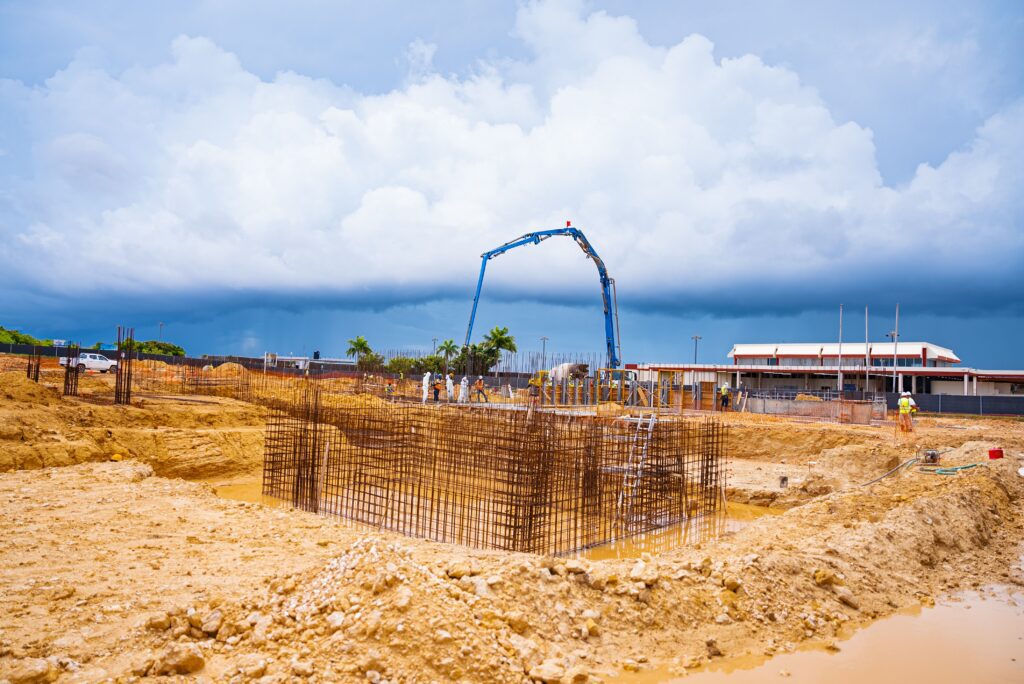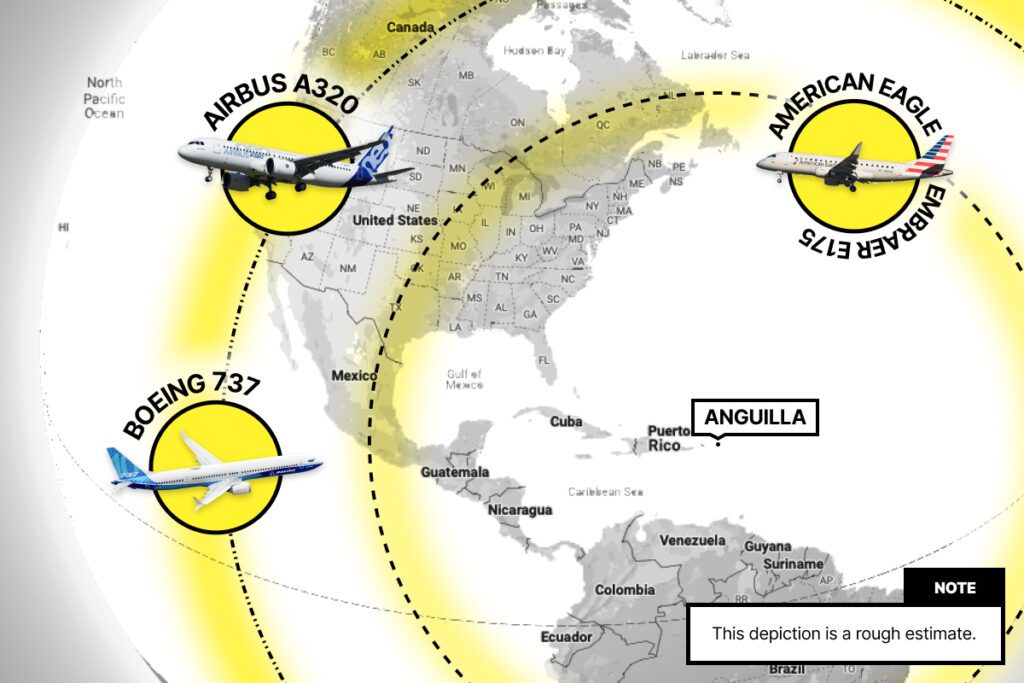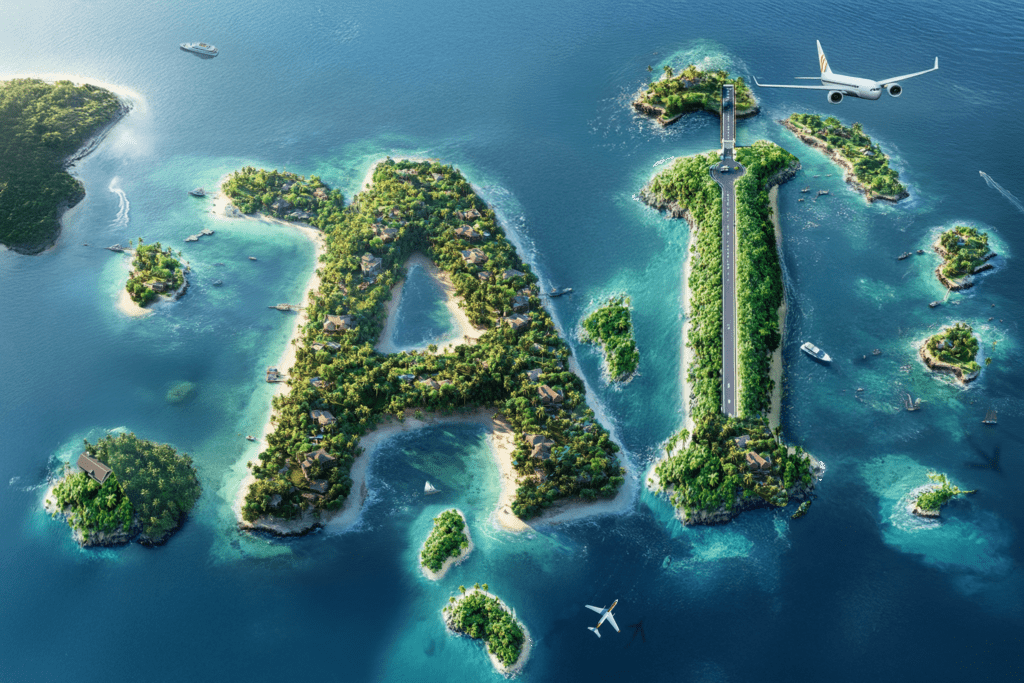[ad_1]
The year was 1985. Ronald Reagan and Mikhail Gorbachev led the world’s superpowers. Madonna and Duran Duran topped the pop charts. The smell of neon and capitalism was in the air.
While yuppies and suburbanites waged backyard cola wars, a small group of computer scientists worked diligently, creating the infrastructure for the first wave of a technological revolution that would soon change the world: the internet.
In university labs and corporate research centers, they laid the groundwork for the digital era. They created the syntax for the first URLs – the familiar .com for companies and .edu for schools.
The same was true for nations. At the University of Southern California, the first top-level country domains were assigned. Some will sound very familiar – .us for the United States, .uk for the United Kingdom. For the next 10 years, they digitally indexed the world.
By 1995, they reached the small Caribbean island of Anguilla. It was assigned .ai.
Sun, Sand, and Digital Real Estate
In the years that followed, Anguilla – an overseas British territory that earns the majority of its revenue from tourism – paid little attention to its .ai domain designation. Anguilla was a sun, sea, and sand travel destination, not a tech hub.
But nonetheless, every time someone registered a URL with .ai at the end – like google.ai – Anguilla earned $140, with renewals every two years. And each little bit of extra money helped.
In 2017, Hurricane Irma – a monster Category 5 storm that directly hit the island – left Anguilla in ruins. Approximately 90% of Anguilla’s GDP was wiped out as a result. The tourism industry shrank by another 25% the following year.
But Irma was only a taste of the devastation that awaited in 2020. The Covid-19 pandemic economically decimated Anguilla yet again, effectively crashing the travel sector and freezing the tourism industry. By the time the worst of the pandemic passed in 2021, Anguilla faced a new reality: a budget shortfall of $100 million.
To keep the country afloat, the government introduced new taxes to generate much-needed cash. Local residents, especially monied expats who had moved to Anguilla for its tax advantages, grew frustrated.
“Part of the reason I came here is because it was such a tax haven,” one Anguillan expat, who had moved to the island in 1994, said plainly. “If I was going to make a lot of money, I wanted to do it where there weren’t a lot of taxes.”
Anguilla, however, desperately needed to diversify its finances; its economic reliance on tourism had placed the territory in peril twice in as many years.
“We are not like many countries where we can go and borrow money and print money,” Anguilla’s Minister of Tourism and Infrastructure, Hadyn Hughes, explained in an interview with Skift. “We don’t have those luxuries.”
But luckily for Anguilla, fate had different plans.
On November 30, 2022, ChatGPT went live, ushering in the second major wave of the information age. Anguilla was sitting on one of its most valuable assets and didn’t even know it yet.
‘We Actually Own This Thing’
From the day ChatGPT launched, those in the tech space clamored to buy a piece of the new AI economy – and just as quickly, .ai became synonymous with artificial intelligence.
It was official. Anguilla had become part of the new 21st-century gold rush.
Dee-ann Kentish-Rogers remembered exactly where she was when she started to realize what artificial intelligence – or more specifically, .ai – could mean for the island.
As the Minister of Education, Social Development, and Culture, Kentish-Rogers was no stranger to the concept of machine learning. During the pandemic, she had explored how AI could help Anguilla’s education system by automating tasks like creating lesson plans for teachers.
But it was during a meeting in the Ministry of Finance that the broader implications of AI for Anguilla began to sink in.
As the conversation unfolded, she heard excited words about more registrations, fees, and renewals but didn’t grasp the full implications. Finally, she wondered aloud, “What does that even mean?”
The excited answer came: “We actually own this thing.”
“And I couldn’t quite wrap my head around the potential impact in that particular moment,” Kentish-Rogers recalled with a grin. She thought Anguilla might actually see some profits from this – perhaps in a few years.
But the benefits would come much sooner than anyone initially expected.
All That Glitters
It didn’t take long before the likes of Google, Elon Musk and major sports figures came calling. Anguilla’s domain suffix was in demand by internet prospectors and Silicon Valley titans alike.
Apple.ai, Google.ai and Otter.ai were all quickly registered. “It took off like a rocket,” Anguilla’s Premier, Dr. Ellis Webster, told Skift.
Now, those modest $140 registration fees multiplied exponentially, more than doubling in one year alone.
In 2023, Anguilla took in approximately $30 million from .ai registrations and renewals, which equaled about 20% of the island’s revenue that year. Anguilla anticipates doubling that to $60 million in 2024, according to Webster. If the trend holds, that means .ai funds will account for almost half the island’s revenue.
Tech Fueled Tourism
Despite the substantial .ai windfall, tourism remains Anguilla’s primary economic mainstay. And much of the .ai revenue is being funneled into projects to bolster the travel sector. The biggest initiative: Anguilla’s airport.
That includes wide-scale terminal renovations and lengthening the runway to 7,000 from 5,400 feet. A longer runway means bigger planes. Bigger planes mean more people and an influx of tourist dollars.
“It’s a game-changer,” says Skift airlines editor Gordon Smith. “This should theoretically allow Airbus A320s and Boeing 737s – the two types of aircraft most commonly used by all major U.S. airlines for short-haul flights – to operate there.”

Currently, American Airlines regional subsidiary American Eagle is the only jet operator flying from Anguilla, and they use small Embraer E175s. And even that has a quirk.
According to Vince Cate, who has lived on the island since 1994 and has run the .ai project since the beginning, direct flights that travel from Anguilla to Miami can’t take off fully loaded with both people and fuel because the runway is not long enough. When the flight is full, the plane has to stop in Antigua, refuel, and then fly to Miami. “It’s annoying,” Cate chuckled.
The primary goal of lengthening the runway is to bring in big planes and direct flights from major international airports.
“I am really looking forward to the direct flights in from places like NYC,” says Rob Willsher, owner of the Anguilla dive shop Vigilante Divers. “Getting to Anguilla can be a challenge and puts people off.”

Source: Christoph Pradel, The Anguilla Tourist Board
Willsher, a British military veteran and part-time officer in the Royal Anguilla Police Force Marine Unit, also thinks it will be helpful for those locals who live on Anguilla; he isn’t worried about more people changing the vibe of the island.
“I do not think that the airlift will ruin the character or charm of Anguilla. We need tourism, it is all we have,” says Willsher.
Change Is Hard
But not everyone is onboard. While the island’s government is looking for growth, among some of its most vocal critics are members of Anguilla’s sizable expat community who fear that the rush towards progress may come at the cost of Anguilla’s coveted hidden gem status.
Plans to expand the runway for larger planes have been met with pockets of resistance.
“Bringing in bigger jets and more tourists will change [Anguilla’s] character completely,” said one expat and property owner who spoke with Skift on the condition of anonymity because they do not agree with the government.
“It will no longer be the peaceful retreat that people, including myself, fell in love with. Anguilla needs to be kept as an upscale, limited destination, not become Jamaica or the Dominican Republic. The day Anguilla gets jet skis and casinos is the day I sell my house.”

Government officials acknowledge the tension. “There is a balance between economic opportunities and maintaining our unique charm,” says Minister Kentish-Rogers, also noting that Anguilla’s structural factors naturally limit large-scale tourism expansions. In other words, with hotel occupancy currently only hovering around 50%, the island has space for approximately double the travelers in its existing hotels.
Anguilla’s tourism ministry echoed this. “Anguilla has a very niche type of tourism. We don’t do cruise ships, casinos, or fast food joints,” says Hughes. “The folks who are really concerned are those who have been coming to Anguilla for 40 years. They didn’t like it when we got electricity or street lights. But we want nice things too — paved roads, educational opportunities, good healthcare.”
‘Keep Taxing the Rich Tourists’
Also at issue: taxes. For an island that has historically been a tax haven, the introduction of the 13% goods and services tax last year fueled public outcry. And with an election on the horizon in 2025, tensions are mounting.
“The government is rolling in money,” one resident said, pointing to the .ai funds. “Why are they taking money out of the maid’s wage, where she’s earning $6 an hour? It doesn’t seem fair to be taking it from somebody who’s just scraping by.”
An expat echoed the sentiment: “People are struggling with basic expenses, and yet, there’s this huge influx of money from .ai that isn’t being transparently accounted for. The locals feel completely duped.”
The frustration is especially evident at Elvis’s Beach Bar, a beloved local haunt and cornerstone of the island’s social scene. “We have yet to see any accounting of these AI funds,” said owner Brett Fetterolf, capturing the mood of many. “We have no idea where the funds have gone or are going.”
Still, some unity remains on one issue – continuing to tax the tourists. “Tourists are spending $2,000 a night on the hotel room. Keep taxing the rich tourists. We’re fine with that,” a resident added.
Amid the financial controversy, Hughes pointed to recent efforts in public welfare. “Last year, we embarked on providing free, comprehensive healthcare for those over the age of 70. Now, we are looking to expand it to include diabetics, the handicapped, and potentially lowering the age threshold,” he said, positioning the windfall as a path toward greater social benefits.
Until the Next Fad
Webster says some of the major tech power players have come to Anguilla and offered to buy the rights to the .ai domain outright. The answer for now is ‘no’. “We see the potential for it for Anguilla,” says Webster. “We’re putting all the building blocks in place.”
“We aim for wholesale changes,” Kentish-Rogers explains. “Our goal is to ensure that everyone feels the net benefit of these funds.”
Webster wants to make Anguilla an AI technical hub, filled with companies and people who are working in the field of machine learning.
“We have good weather. Sun, sand and sea. And hospitable people,” Webster says. The ultimate goal is to further diversify the economy. Anguilla has already opened up a special economic zone so companies can register virtually and offer low or no tax incentives.
“We’re thanking God that back in 1985 when the internet came and the world started giving these codes to different countries that we got .ai,” Webster said with a smile. He wants to make Anguilla an artificial intelligence hub in the Caribbean and turn the island’s good luck into a working economic engine that serves Anguillians well into the future.
“We see the potential for it for Anguilla,” Webster says. “We want to have a continuous revenue stream until some other fad comes along.”
[ad_2]
Source link

